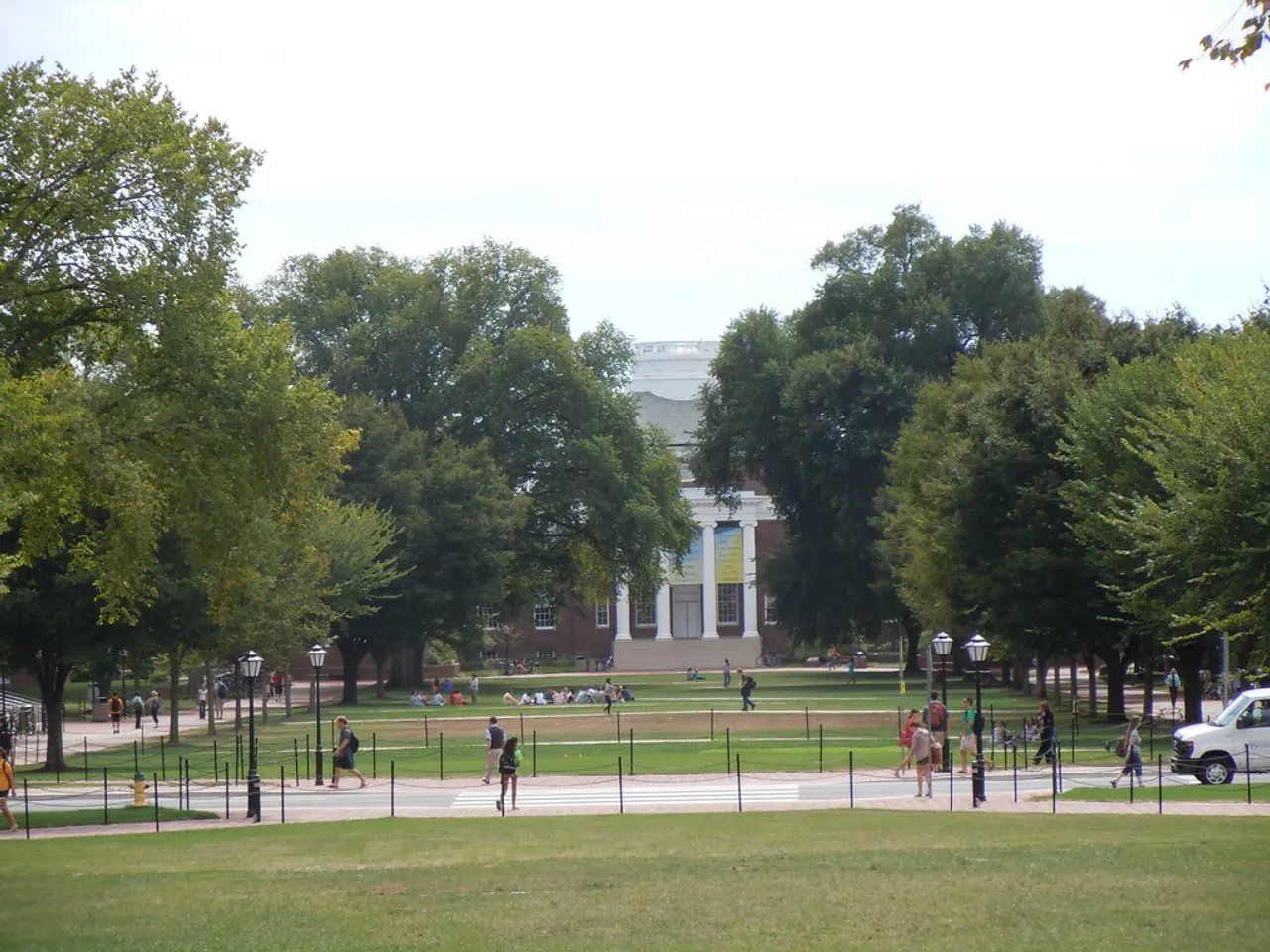Practical universities are scoring prominently
In a significant stride towards enhancing research capabilities and fostering international cooperation, universities of applied sciences (HAW) in Germany are witnessing a surge in research activities and global partnerships.
The German Research Foundation (DFG) is at the forefront of this transformation, supporting an international exchange for HAW researchers that extends beyond Central Asia to include countries like India, Pakistan, Kazakhstan, Uzbekistan, and more.
This exchange is focused on digitalization, sustainable urban development, renewable energies, and resource management, aiming to promote collaborative research and sustainable transatlantic cooperation with partners like York University in Canada.
Under the guidance of Research Minister Dorothee Bär, the emphasis on research at HAW is aimed at improving the institutions' research capabilities and better demonstrating their strengths in research. Bär emphasized the importance of research for universities of applied sciences in May 2025, stating that they should develop programs like "Research at HAW."
The internationalization focus is one of the key areas of emphasis during Bär's tenure as Research Minister. This is evident in the establishment of an international startup centre at Neu-Ulm University and the development of a "Smart Textiles" bachelor program in collaboration with universities in Belgium, Finland, Sweden, and Indonesia at Niederrhein University.
The calls for proposals at HAW cover a variety of topics, including healthcare sciences, neurotechnology, and climate adaptation in rural areas. The latest calls also involve topics in material sciences, additive manufacturing, and experimental characterization methods, as exemplified by the exchange and joint presentations at the Advanced Materials Workshop.
In addition, the "Global Women in Engineering and IT" project, a collaboration between Berlin University of Technology and its Australian partner universities, supports women's academic advancement.
At a conference in Dortmund in May 2025, the diversity of international partnerships for universities of applied sciences was highlighted. The German Academic Exchange Service (DAAD) has been supporting these partnerships for over five years, playing a crucial role in their establishment.
The DAAD program has been instrumental in facilitating these collaborations, with Dorothee Bär stating that universities of applied sciences could better demonstrate their strengths in research through such partnerships. The focus on research at HAW includes the development of new programs and calls for proposals, ensuring that these institutions remain at the forefront of research and innovation.








